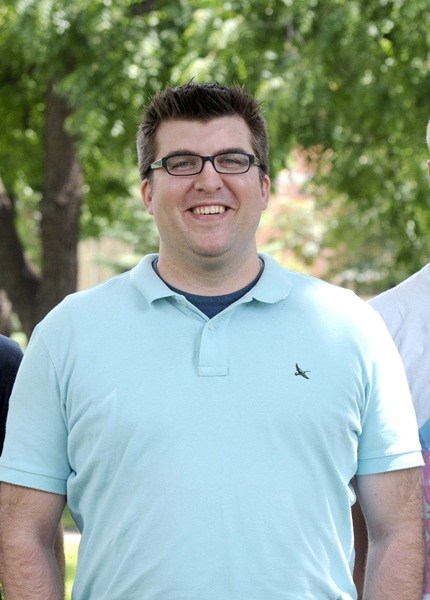Michael Wentzel (Augsburg College, Minneapolis, MN)
 After starting at Augsburg College and knowing the value of the cCWCS workshop from my time as a TA for the cCWCS Guided Inquiry in Organic Chemistry Laboratory workshop, I applied for and attended the Active Learning in Organic Chemistry workshop in Charlotte, NC learning a number of new ways to engage students in the learning process. Since then I have completely revamped my organic chemistry lectures and labs using both Clickers and flipped classroom videos since my attendance. I have found that using Clickers provides rapid feedback for me when used throughout lecture, especially helping to understand the level of understanding amongst students. It is easy for me to often know that the majority of my students understood a concept, but there is large difference between 55% and 95% comprehension! The Clickers allow for knowing this difference in real-time. I also find that it is useful to help my students develop their multiple-choice problem solving skills, which is a struggle for a number of my students. I also use my iPad to record evening review sessions working through homework problems, which allows for busy and commuter students to have access to this resource. It allows for a permanent resource for all students to view multiple times. I hope in the future to create video tutorials for specific concepts and topics to begin to completely flip my classroom in the future.
After starting at Augsburg College and knowing the value of the cCWCS workshop from my time as a TA for the cCWCS Guided Inquiry in Organic Chemistry Laboratory workshop, I applied for and attended the Active Learning in Organic Chemistry workshop in Charlotte, NC learning a number of new ways to engage students in the learning process. Since then I have completely revamped my organic chemistry lectures and labs using both Clickers and flipped classroom videos since my attendance. I have found that using Clickers provides rapid feedback for me when used throughout lecture, especially helping to understand the level of understanding amongst students. It is easy for me to often know that the majority of my students understood a concept, but there is large difference between 55% and 95% comprehension! The Clickers allow for knowing this difference in real-time. I also find that it is useful to help my students develop their multiple-choice problem solving skills, which is a struggle for a number of my students. I also use my iPad to record evening review sessions working through homework problems, which allows for busy and commuter students to have access to this resource. It allows for a permanent resource for all students to view multiple times. I hope in the future to create video tutorials for specific concepts and topics to begin to completely flip my classroom in the future.
Technology plays an important role in my teaching as well. I have used online homework that is able to track student attempts and as a less formal method of just in time teaching. I hope to use more formal methods of just in time teaching with on-line pre-quizzes for lecture. I have already begun using them for my laboratory courses. The use of technology is also found in my classroom with new applications such as Chairs!, an application that helps student’s practice cyclohexane chair flips in a game format. The aptitude of my students in this difficult practice has greatly improved as a result. Finally, I was fortunate to receive a cCWCS grant to purchase NMR software. This has allowed for students to work-up and analyze their own data instead of simply being handed a polished spectrum. It has greatly increased ownership and understanding of the NMR data my students generate.
